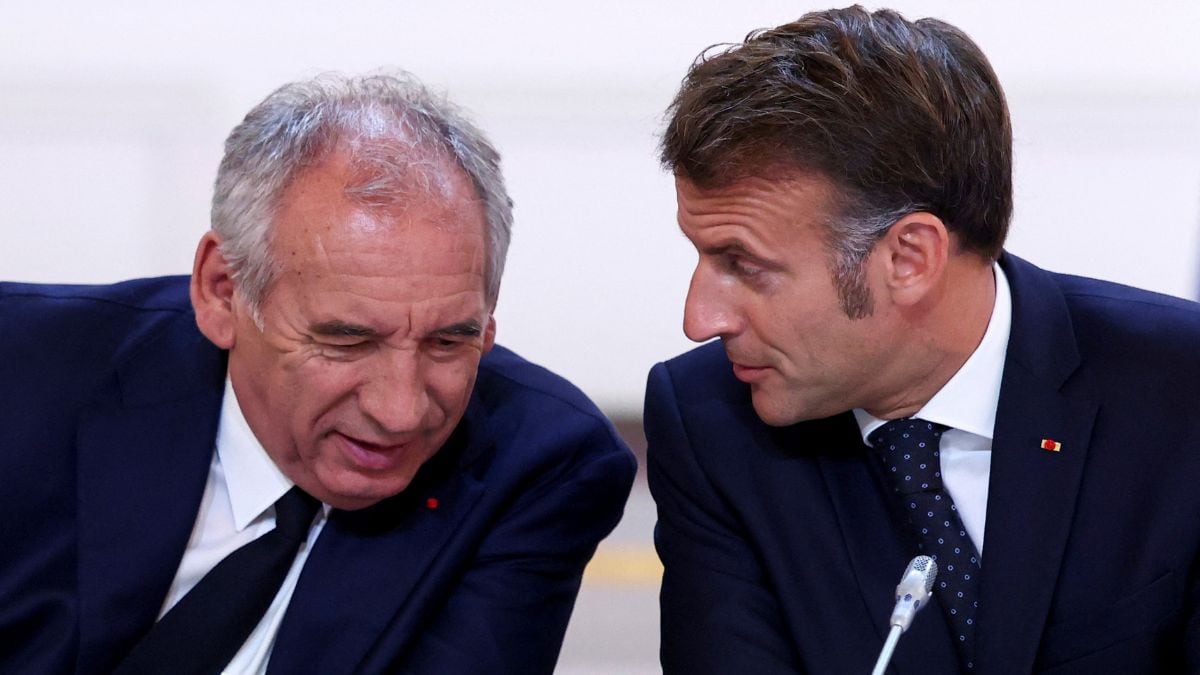France’s Prime Minister François Bayrou faces a daunting political challenge ahead of the September 8 confidence vote. Bayrou, though widely expected to lose the vote, has been meeting leaders from across the political spectrum, including Marine Le Pen of the National Rally. But what do we know about the situation in France?
France is on the brink of another political crisis with Prime Minister François Bayrou fighting to save both the government and his job. Bayrou is set to hold talks with several leaders including far-right leader Marine Le Pen as the government’s plan to cut public spending goes up for a confidence vote this week.
With opposition parties pledging to reject the austerity budget, Bayrou is widely anticipated to lose the September 8 confidence vote. A defeat for Bayrou would compel
President Emmanuel Macron to either seek a consensus prime minister, a challenging task in a divided France, or dissolve the National Assembly yet again
Here’s what to know about France’s latest political turmoil ahead of the vote:
What is the reason for the crisis?
The prime minister personally initiated the confidence vote to seek parliamentary approval for his unpopular budget. Arguing that sharp spending cuts are needed to repair public finances, he announced plans last month for a $51.24 billion (Rs 4.51 trillion) reduction in 2026 spending.
That followed a 5.8 per cent deficit that exceeded the EU’s official 3 per cent target.
France is also facing a significant debt crisis. The country’s public debt was $3.90 trillion (Rs 343.01 trillion), 114 per cent of its GDP, at the end of the first quarter of 2025. This means a substantial portion of the state budget, around 7 per cent, goes solely towards servicing this debt.
Bayrou’s plan, which includes removing two public holidays, has been slammed by his political rivals, who now have a golden opportunity to bring him down.
How are negotiations going?
Not well.
However, Bayrou still hasn’t given up.
The Prime Minister is organising a series of meetings with political leaders across the political spectrum. On Tuesday (September 2), left-wing European Parliament member Raphael Glucksmann met with Bayrou and urged him to cancel the vote if he’s serious about negotiating a compromise on the ‘unacceptable’ budget.
Le Pen and her National Rally protege Jordan Bardella also met with Bayrou and repeated their total opposition to his budget, calling for new legislative elections.
Raphael Glucksmann, co-president of French centre-left party, Place Publique, spoke to media following a meeting with French Prime Minister Francois Bayrou before a confidence vote. AP
Le Pen was convicted of embezzlement and barred from holding public office for five years in April. She is currently appealing the ruling. Nevertheless, her legal issues have not hindered her party’s progress. With National Rally leading in opinion polls, its leaders have consistently asserted their readiness to govern should Bayrou’s administration fall.
“The only way for a prime minister to have a longer tenure would be to break with Macronism,” Le Pen said. “It is Emmanuel Macron’s policy that is deeply toxic.”
On the far left, Jean-Luc Mélenchon’s France Unbowed said it will not support any government other than one led by his party, and has urged Macron to step down if Bayrou fails to win the confidence vote.
Far-right and left-wing lawmakers hold over 320 seats at the National Assembly while the centrists and allied conservatives hold 210, making it impossible for Bayrou’s government to survive if opposition groups team up.
Will Macron leave his position?
Macron has made it clear that he plans to serve out his term of office. He has urged political leaders to “find paths of agreement” on the budget ahead of the vote.
“The challenge is not insurmountable,” said Macron, whose decision last year to call early legislative elections led to the chaotic situation in parliament, divided among three minority blocs that do not have enough seats to govern alone.
Macron’s snap elections have thrown French politics into disarray. France’s failure to pass a budget has rattled investors and hurt the wider eurozone, given its status as a major global economy. The previous government also collapsed over its budget plans, which involved slashing spending by $46.58 billion (Rs 4.10 trillion) and raising taxes by $23.29 billion (Rs 2.05 trillion). It seems Bayrou’s version isn’t getting a warmer reception.
Day of disruption ahead?
In addition to the confidence vote, Bayrou’s government could face a nationwide day of disruption on September 10. The “Bloquons Tout” (Block Everything) movement, originating on social media, is organizing groups across the country to stage a coordinated day of protest against government policies. The movement gained national attention this summer following the announcement of the 2026 budget and its controversial measures, including the plans to remove two public holidays.
French far right leader Marine Le Pen, right, and Rassemblement National party president Jordan Bardella speak to the media following a meeting with French Prime Minister Francois Bayrou. APWhat lies ahead?
If Bayrou loses, Macron could appoint a figure from the traditional left or right to try to consolidate his centrist alliance. Either option, however, would face a tumultuous political environment. Bayrou succeeded conservative Michel Barnier, who was ousted after only three months in office.
Names circulating as potential successors include Sebastien Lecornu, France’s youngest-ever defense minister at 39; Gerald Darmanin, former interior minister and current justice minister; and Catherine Vautrin, an experienced centre-right politician serving as labour minister.
With inputs from AP
